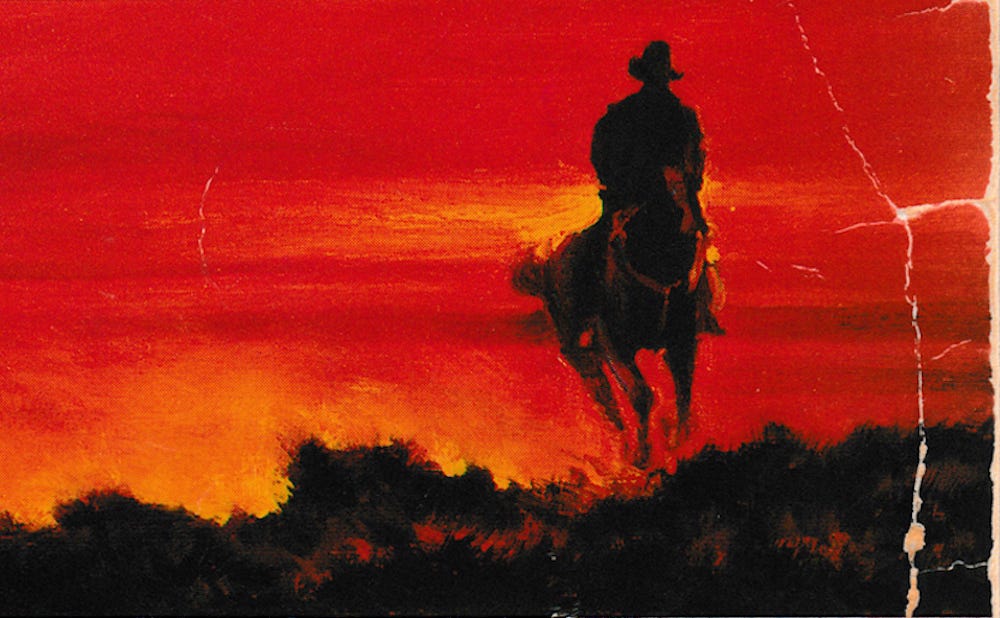In Chapter VII of Blood Meridian, four Mexican performers1 join Glanton’s Gang in the little town of Corralitos and accompany the scalp hunters across the desert.
Seated around the campfire the first night of their journey, en route to Janos, Glanton addresses the father of this family and asks him if he “tells fortunes.”
The answer is yes. The showman (a…




